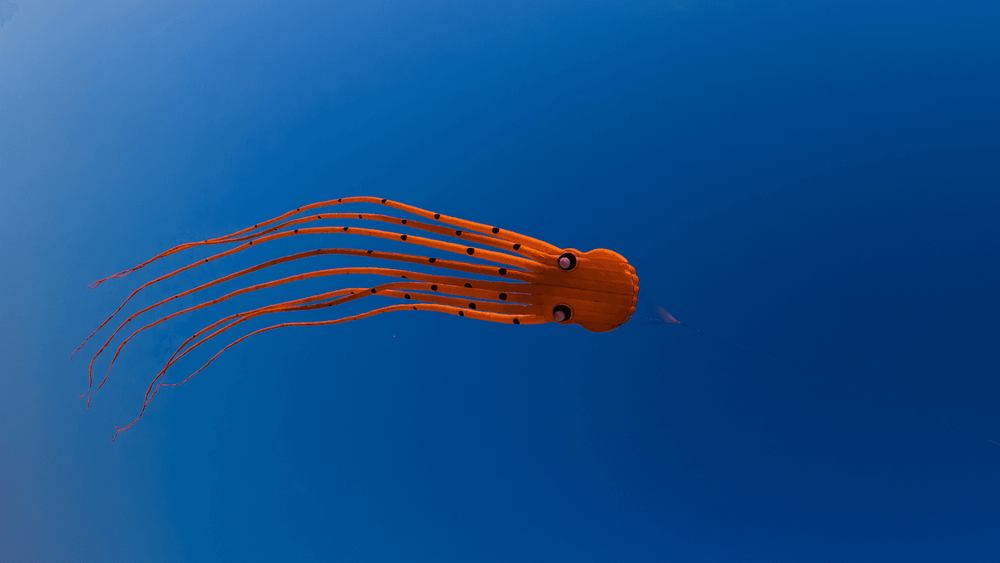Release the kraken: Intriguing octopus facts
Octopuses (or octopi) “are probably the closest we will come to meeting an intelligent alien,” claims scuba-diving philosopher of science Peter Godfrey-Smith. With over half a billion years of evolution, distinct from our own, field scientists are proving their sentience and superintelligence.
Octopus facts
There are currently around 300 known species of octopus, “including deep-sea as well as reef-dwelling forms.” Ranging from less than an inch in length to the giant Pacific octopus, “which weighs in at 100 pounds and spans 20 feet from arm tip to arm tip.” They are cephalopods, invertebrates that include squid and cuttlefish. Some, including the blue-ringed octopus, are venomous.
Neurons are found in their arms, with each tentacle acting autonomously. However, the brain can take over if necessary, but their decentralised nervous systems mean they can act quickly and instinctively: controlling their arms only by looking at them. Octopuses can lose an arm to an attacker and regrow one later.
To camouflage, octopuses can “see” with their skin by replicating the surrounding terrain using a “layered screen of pixel-like cells known as chromatophores, iridophores and leucophores to detect and reflect the shade and pattern of rocks or sand”. Cephalopods also change colour according to their moods.
Escape artists
Creatures in captivity suffer from boredom and depression. Octopuses, with their agility and intelligence, are apex escape artists.
Brighton aquarists during the 1870s were perplexed as to how lumpfish were vanishing until one morning, the resident octopus was discovered in the lumpfish tank. Each night it would escape to feast on the fish before returning to its tank.
Workers at an aquarium in New Zealand followed suction cup prints made by the octopus, Inky, across the floor to a six-inch wide drain, where Inky squeezed through and escaped to the Pacific Ocean.
Unfortunately, if an octopus manages to escape their unjust prison, they have little chance of survival as they cannot breathe out of water for longer than ten minutes or are poisoned by floor cleaner. “They are very strong, and it is practically impossible to keep an octopus in a tank” states Octopus expert Jennifer Mather.
Superintelligence
Octopuses are inquisitive trickers and “simply take things apart”, says Mather, who recalls an octopus dissembling “piece by piece” a robot submarine that puttered around in a large aquarium tank. “Octopus’s behavioural repertoire has few fixed, pre programmed responses, and it can respond to a given stimulus in a great variety of ways; those are both hallmarks of intelligence and learning.”
In 2009 at the Santa Monica Pier Aquarium in California, a two-spotted octopus took apart a water recycling valve and directed a tube to shoot water out of the tank for a total of ten hours, which caused a huge flood.
Do octopuses have personalities?
Anthropomorphising may appear solipsistic; however, for anyone who has spent enough time with an animal, we cannot help but find relatable terms to explain their behaviours. “If you watch enough octopuses long enough you can distinguish the calm from the in-need-of-Valium. In the face of a threat, some of these eight-limbed cephalopods take risks and intrepidly check out danger, while others cower,” said the late neuroplasticity science writer Sharon Begley.
When Jennifer Mather started fieldwork on the behaviour of juvenile common octopuses in the azure waters of Bermuda, Mather expected their subjects to be much the same. “I assumed their activities would be fairly limited; individuals would hunt, rest, and avoid predators, all in roughly the same way. In fact, I learned, their behaviour is quite complex and variable.” Each octopus had its preferences - carefully choosing rocky crevices to make dens, navigating complicated routes to and from hunting grounds.
Eduardo Sampaio, an octopus scientist, has witnessed octopuses punching fish that steal their food. Not in an attempt to retrieve the food but out of “spite” or to penalise the fishy thief.
The award-winning documentary, My Octopus Teacher is an excellent example of the granularity of one octopus’s life. Craig Foster starts scuba diving with his camera and is greeted by a common octopus. They interact every day for a year: a cephalopod intrigued by a human. A head with eight dancing arms, bobbing, floating, zapping through the water, escaping the attack of a shark by riding on its back, and exploring Foster with her tentacles - this close and personal account demonstrates her dynamism and “personality”. One day she attempts to catch a lobster and fails. The next day, she tries again, but this time she’s strategic and forms a trap. My Octopus Teacher reinforces the importance of us learning more about these creatures in their natural habitats, even via watching footage; you cannot gain much understanding by visiting them in aquariums where they are bored and suffering.
This article only touches on how fascinating octopuses are. Explore further with Peter Godfrey-Smith’s empathic and highly rated book, Other Minds: The Octopus and the Evolution of Intelligent Life and please sign the petition started by Animal Save Movement to stop octopus farming.
Did you enjoy learning about some intriguing octopus facts? If so, check out every animal has a unique personality and for a closer look at nature's wonders, see animal tourism: how to practice it ethically.
